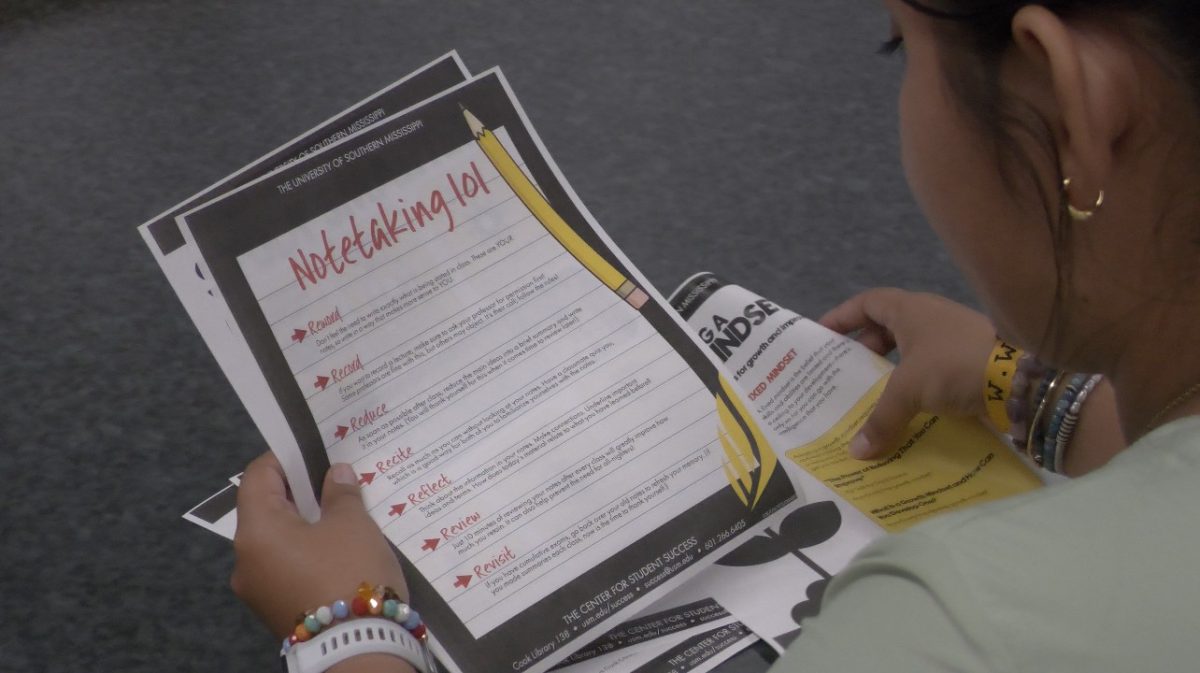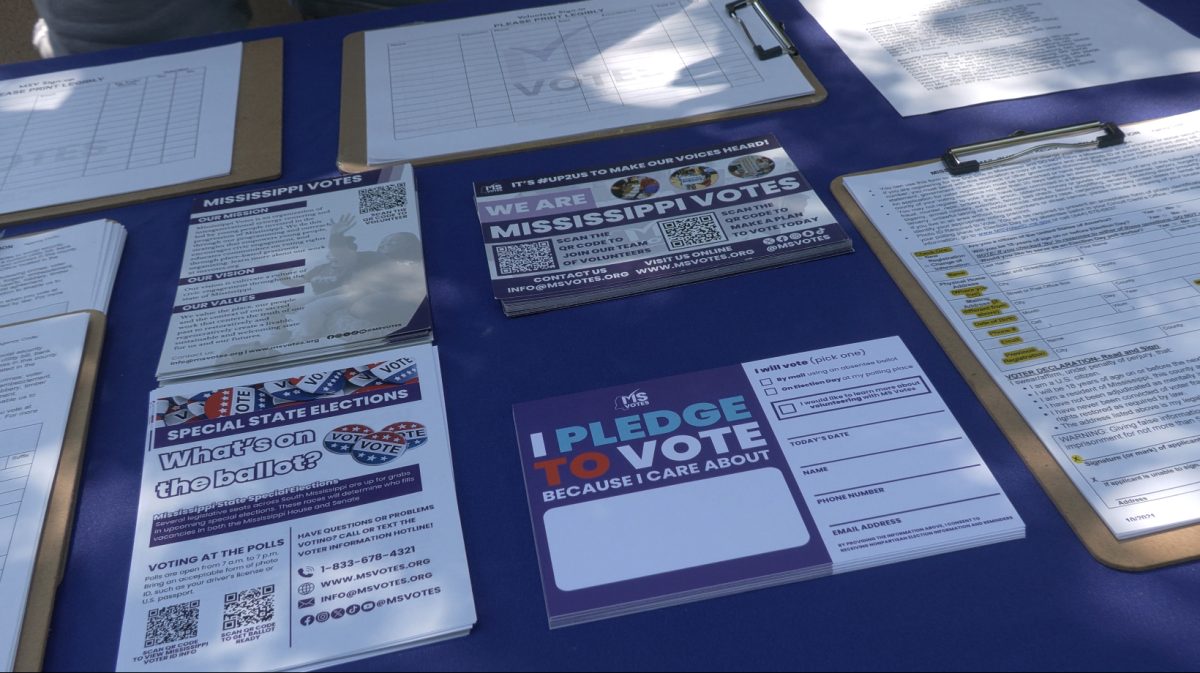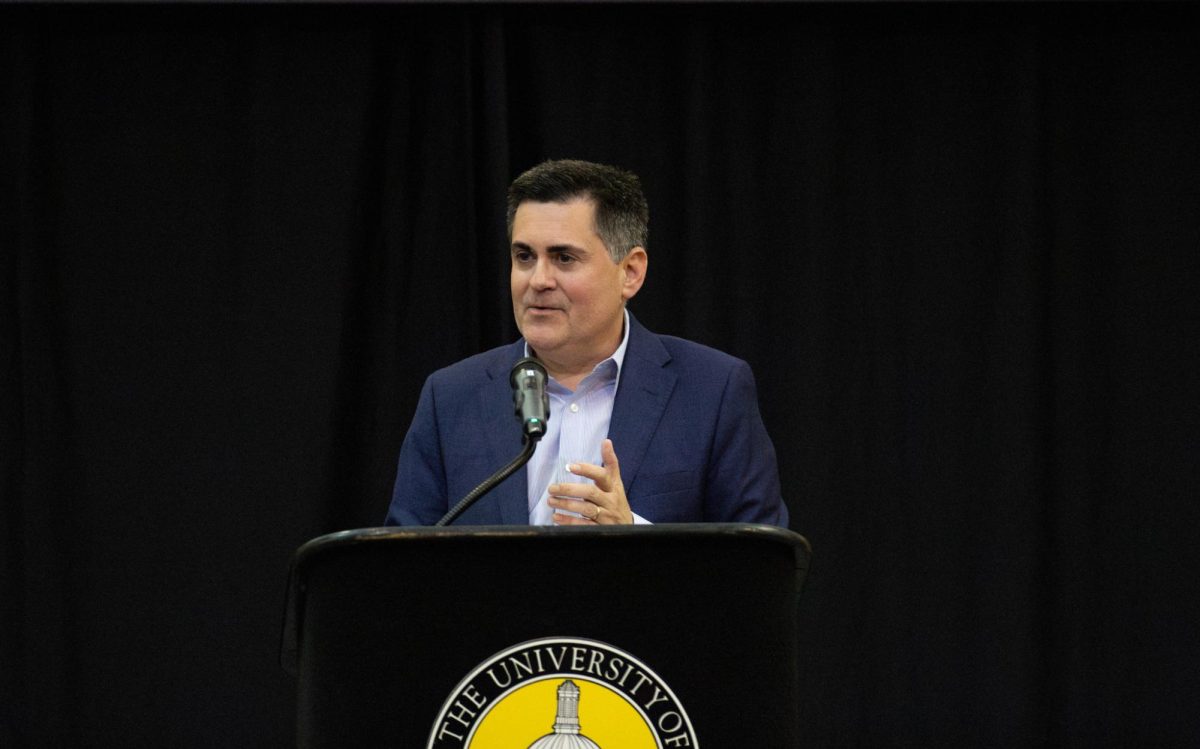Those attending the Master Class: “Media Leadership in an Uncertain Age” with Gregory Favre on Oct. 9 were given the opportunity to pick the brain of a media veteran and learn from his career.
“It is a humbling and happy experience to return to my home state,” said Favre of returning to Miss. to speak to journalism students at The University of Southern Mississippi.
Favre is a former editor of the Sacramento Bee and retired vice president of McClatchy Newspapers. He served as editor and managing editor for various publications all over the nation, beginning his career at his family’s newspaper in Bay St. Louis at 10 years old.
“I got to go to the newsroom every day and got paid to do it. I cannot think of a greater gift,” Favre said.
He said his first jobs in the newspaper industry taught him discipline, timeliness and the importance of details.
Having served as the editor of the Palm Beach Post in 1969, the first computerized paper in the nation, Favre said much has changed in the journalism industry over the years, but what hasn’t changed is the mission of journalists.
“The common denominator in journalism is the desire to want to know what is going on,” Favre said.
When asked about the future of print journalism, he said he believes it will be around for a long time because storytelling will always be alive. He also believes in the importance of diversity and equal representation of minorities in the newsroom.
“The look of the community should be represented in the newsroom so that we can better understand it,” he said.
For photojournalism majors, Favre learned during his career that images impact readers in a different way than stories. But, he does encourage students to pursue all areas of the field because jobs often require applicants to have experience in writing, film and photography.
Favre said every student should do his or her best work, network, put together a portfolio of 4-6 clips and always be conscious and careful when posting on social media.
He said when preparing for job interviews, students seeking jobs in journalism should always do their homework and read the newspaper. In job interviews, always ask good questions and be yourself.
Favre said internships are the best way to prepare for any career because he believes internships are a continuation of education.
“In hearing Mr. Farve speak, I learned that to succeed in this field, you truly have to be passionate about your work and love every aspect of it, even the bad,” said junior broadcast journalism major Charlotte McLoughlin. “You must be willing to accept that there will be stress and disappointments but your love for it should overpower how that can affect you negatively.”
“I also learned that each journalist has a chance to change a small part of the world by doing their best work and being the best person they can be,” she said. “By having a generous spirit and accepting others despite their differences you can make a difference in this field that is ever-changing.”
“Whatever career you choose, do it with love and the rest will follow,” Favre said. “If you do not enjoy yourself, get out of it. It does not mean you will not work hard, have disappointments or have stress, but you have to have fun.”
“I really enjoyed hearing not only Mr. Favre’s past experiences, but how he delivered the information, as a true storyteller,” McLoughlin said.
“I believe that the media is looked at in a negative way these days and that it is up to our generation to change that.” she added.
“He really helped me to see how the honest principles of journalism are what makes you a success. As Bill Watterson, creator of Calvin & Hobbs says ‘creating a life that reflects your values and satisfies your soul is an achievement.’”































